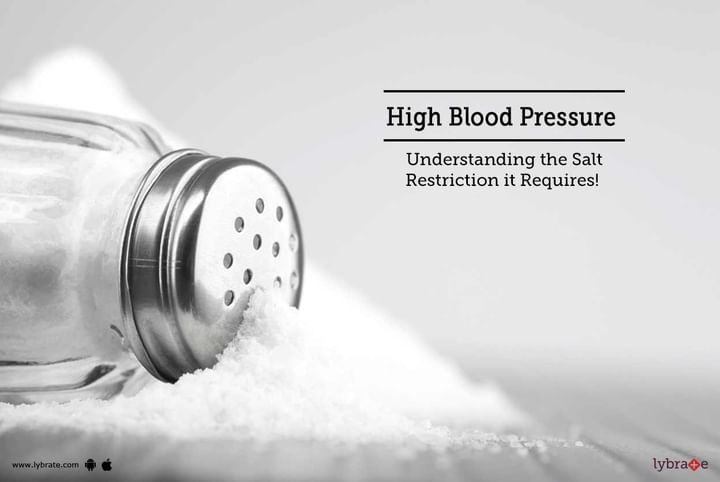High Blood Pressure - Understanding The Salt Restriction It Requires!
If you have been diagnosed with hypertension, your doctor must have advised you to cut down or limit your salt intake. The amount of sodium in your diet is an important factor that impacts your blood pressure.
Why is it important to restrict sodium in your diet?
Sodium is an important mineral that is required in very small amounts by the body, to maintain electrolyte balance. Increased sodium intake may lead to water retention which may cause high blood pressure. Therefore, it is very important to have a balanced intake of sodium in your diet.
What are the sources of sodium?
Reports and surveys say that most of the sodium in your diet comes from processed, preserved and junk foods. Foods like ketchup, chips, ready to eat meals, canned foods are high on sodium. Other sources of sodium in your diet could be namkeen, pickles, papads or adding salt to your fruits, salads and other cooked foods.
How to reduce the intake of sodium?
Now you know, what are the sources of sodium in your diet, so it would be easy to keep a check on your daily sodium intake. As a thumb rule, you should not take more than 5 gm of salt per day. Here are some tips that will help in limiting the intake of sodium in your diet:
-
Don’t put additional salt in your foods, fruits or vegetables. Avoid using table salt.
-
Read the food labels especially when buying ready to eat foods or canned foods, sauces, ketchup, namkeens and cereals. You can opt for foods/brands that say - low-sodium foods.
-
Include a lot of fresh, seasonal fruits and vegetables in your daily diet. Fruits rich in fiber and potassium, help in avoiding water retention and keeping blood pressure in control.
-
Avoid adding salt at an initial stage of cooking, instead add it during the last stage of cooking. This helps in reducing the amount of sodium in your meal.
-
Add natural herbs and spices like chilli, ginger or lemon to get that extra flavour. Avoid using pickles and papads as accompaniments.
-
When eating out ask specifically for less salt in your dishes. You can also choose to avoid soups as they may be high on sodium because of use of sauces etc.
Too much of sodium in your daily diet will increase the chances of hypertension, which in itself is a risk factor for many problems related to heart and kidney. So, it is important to choose your food wisely.


+1.svg)
